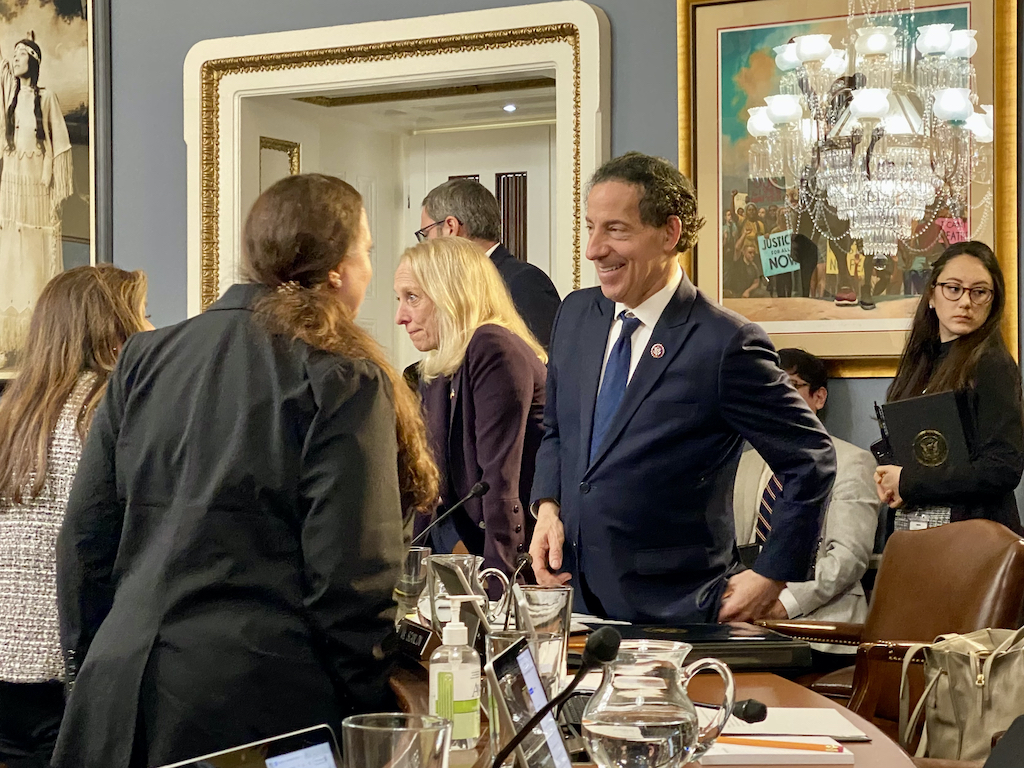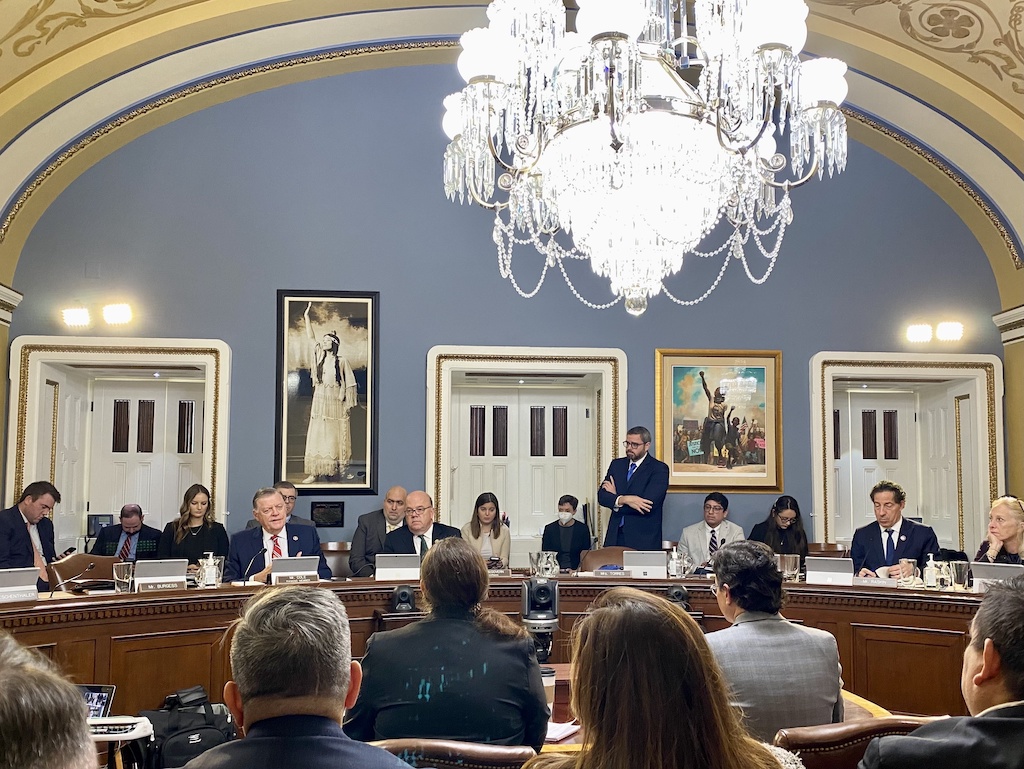WASHINGTON – The Cherokee Nation called upon a House panel Wednesday to uphold the terms of a 187-year-old treaty and seat a delegate representing the tribe before the end of this year.
The House Rules Committee held a hearing with the Cherokee Nation’s Principal Chief Chuck Hoskin Jr. and legal experts to discuss the treaty’s implications and explore options for meeting that request.
“Words alone don’t absolve us of the horrific injustices brought on Native American communities at the hands of the US government, and that is why I’m hopeful that today’s historic hearing opens a new door towards building greater understanding and the possible inclusion of these communities in Congress,” said Rep. Jim McGovern, D-Massachusetts, and the committee’s chairman.
In 1835, the U.S. government and a minority portion of the Cherokee Nation East signed the Treaty of New Echota, agreeing that the Cherokee Nation would cede ancestral land in Georgia.

In return, the treaty includes a provision, Article 7, that the Cherokee “shall be entitled to a delegate in the House of Representatives,” said Mainon Schwartz, legislative attorney for the Congressional Research Service.
The treaty was ratified by the Senate and eventually became the legal basis for the violent, forcible removal of the Cherokee people known as the Trail of Tears.
“The history since 1835, with the Cherokee Nation, has been one of rebuilding and then being suppressed again, being oppressed again, being dispossessed,” Hoskin told lawmakers. “We seem to be in rebuilding mode for the last few centuries.”
Now, Hoskin said, the Cherokee Nation is finally in a position where it can assert its right to representation.
After nearly 200 years with the other portion of the treaty unfulfilled, the Cherokee Nation appointed its first delegate to the House of Representatives, Kimberly Teehee, in 2019.
Teehee would be a non-voting delegate, similar to delegates from U.S. territories, able to serve on and vote in committees, but not empowered to vote on the floor.
The distinction between member and delegate is important because it means the Cherokee people would not be double-represented by a House member representing their district and the Cherokee delegate in substantive votes, said Lindsay Robertson, professor of Native American Law at the University of Oklahoma.
The committee is considering two options for seating Teehee: a resolution to amend the standing House rules or separate legislation that would need to pass the House and Senate and be signed by the president.
Because standing rules need to be reaffirmed every two years, a resolution would not create a permanent position, Schwartz said, but passing a bill would address that issue.
If the United States decides to honor the treaty’s promise after two centuries, Hoskin said, it would be “breathtaking” for a future Congress to break that promise.
Other tribes and Cherokee bands have sent letters to the committee requesting delegates, McGovern said, prompting concerns from House members.
The language of the New Echota treaty is the clearest legally, Schwartz said, and there are rulings declaring the Cherokee Nation as successor to the original treaty.
“We need to look into everything, but needing to look into everything doesn’t mean we have to wait on taking action on something that is pretty clear,” said Rep. Tom Cole, R-Oklahoma, and the ranking member of the committee.
The House can both pass a resolution to seat Teehee now, and work on long-term legislation that might address the appeals of other tribes, McGovern said.
“I don’t think we should be very patient in the face of this (incoming) Congress,” said Rep. Jamie Raskin, D-Maryland. “And I think we should act with dispatch to make this happen. I think there are some final things we’ve got to figure out, but we should move as quickly as possible.”


You must be logged in to post a comment.